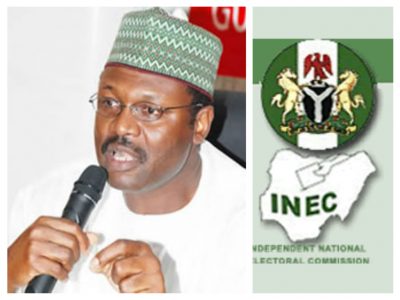Economy
Nigeria loses N2 trillion to polls shift — Experts

The postponement of the Presidential election by the Independent National Electoral Commission, INEC on Saturday morning just few hours before polls opened has more than political cost and implications for the country. Economic and financial experts believe the economy may have lost more than a third of the 2019 budget to the one week shift of the election from February 16 to February 23 2019.
In simple terms the postponement may have cost the country over N2 trillion given that the 2019 budget is N8.4 trillion. This entails the cost of electoral materials and deployment of staff by INEC, and lost income by businesses and individuals from the shut-down of the economy
They expressed concern over the postponement as it has deeper economic ramifications for the nation beyond the political issues. According to them it heightens the political and election risks of the country and further dampens international investment perception of the country.
Mr. David Adonri, Chief Executive officer of Highcap Securities, said that we cannot make light the burden this action has imposed on the nation and economy and demanded that somebody should be held to account for this gross damage to the nation. He wondered why INEC has all along assured the nation of its preparedness to conduct the polls as scheduled only to make a volte face in the 11th hour.
“My simple calculations is that this action would have cost the country a quarter of the 2019 budget given the fact that, unlike the previous postponement in 2015, electoral materials and personnel have been fully deployed and some sensitive materials have to be reprinted on account of this sift. My worry is that the one week period may not be enough to address the issues arising from the action and this may lead to another postponement’, he said.
He said that the market had been bullish in the past eight straight days after months of bearish run when the anticipated risks of the elections appeared unfounded, which was a credit to the country on the management of the elections. But such optimism now seems to be premature as the postponement would heighten the negative perception and increase the political risk of investment in the country.
Also Mr. Teslim Shitta-Bey of Proshare Consult believes that the INEC decision will do the country more harm than good in spite of the reasons it adduced, because of its multifaceted implications. He noted than the economic and financial costs are huge and could never be fully captured statistically because of the dominance of the informal sector of the economy.
“Obviously, this is a sad development for the economy, which has suffered badly in the past three years. There is no magic that can change the damage it has done. It simply confirmed the political risk of the country.
“Foreign investors that had been skeptical of the economy now have a good reason to stay away; even the Diaspora funds that constitute a huge portion of capital imports may be affected as Nigerians abroad lose faith in the government.
“Again interest rate is rising in U.S. and this provides alternative investment options to the emerging markets such as Nigeria. I don’t see the GDP improving from last year’s level of 1.9 percent in 2019”, he said.
A report released last week by an international agency high-lighted the challenges and importance of the 2019 elections to both Nigeria and the world. According to the Brookings Group this year’s presidential elections are consequential for Nigeria.
The good news in Nigeria is that ethnic strife has given way to discussions of economic issues, infrastructure, corruption, and security. This positive development has recently been overshadowed by the brazen attack on the judiciary, a key institution of democratic governance.
There are clearly moments in every country’s history when political leaders emerge who think globally and act locally to tackle seemingly intractable development problems.
The emergence of such an enlightened leader—credible, competent, reform-minded, and able to rebuild the institutions of governance—is what Nigerians desperately need now. Will such a leader fit for purpose be the outcome of the 2019 presidential elections?
If not, the country will likely continue to add fuel to the fodder of its failures, guaranteeing a tarnished brand in global rankings. Nigeria will thus miss the opportunity to be a pre-eminent leader at a time of increased momentum toward continental integration.
News continues after this Advertisement
News continues after this Advertisement




